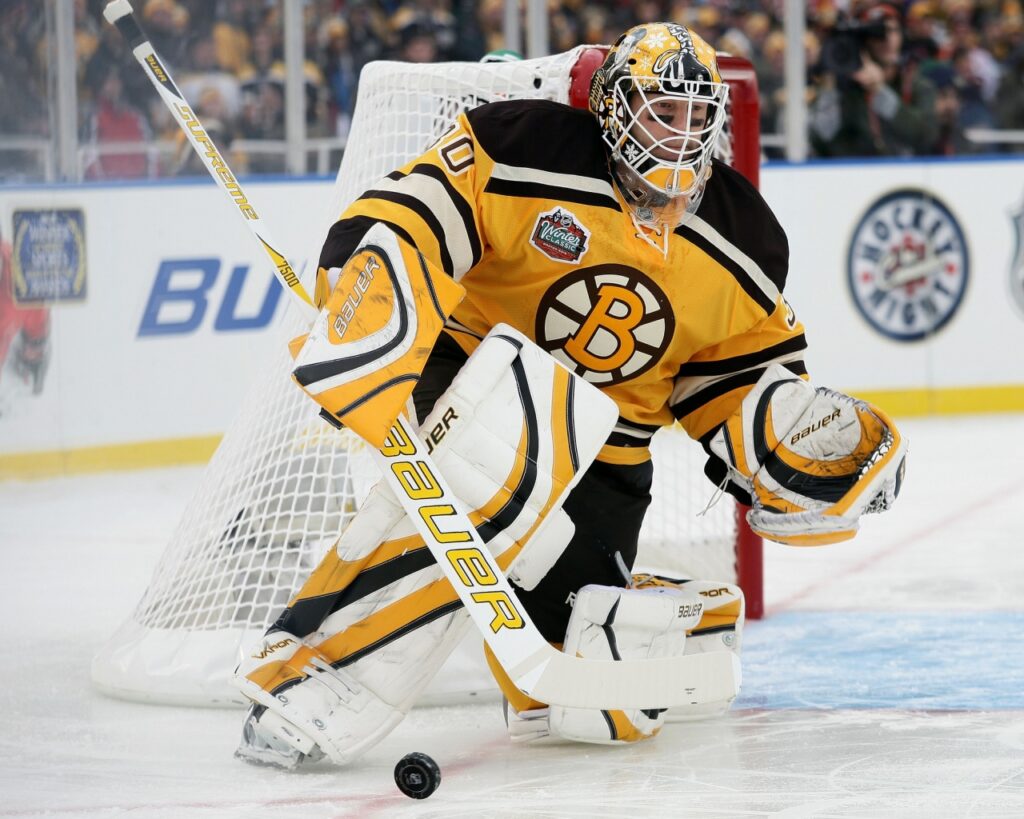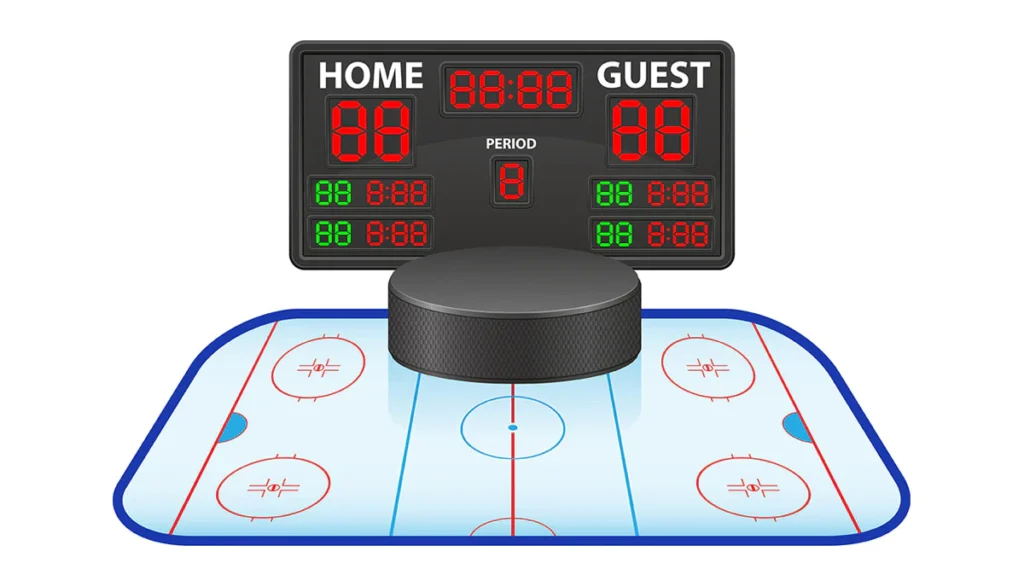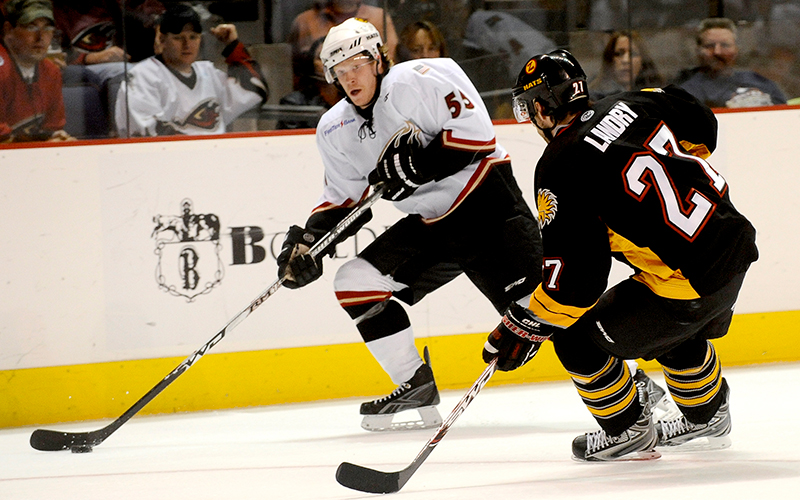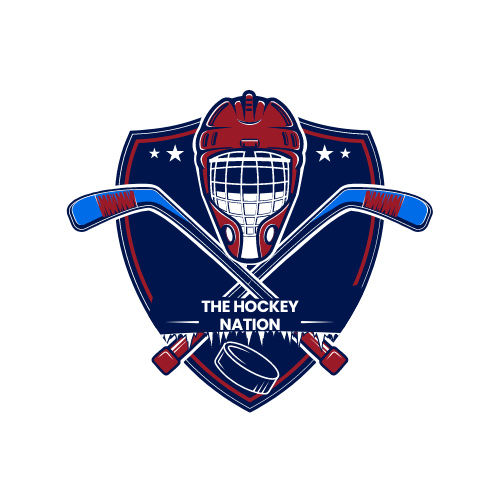Hockey is a popular sport that is played all over the world. The game is fast-paced and exciting. One of the FAQs about hockey is, “How long is the game?”
Hockey, a beloved sport played worldwide, offers a thrilling and fast-paced experience suitable for all ages.
Ever wondered, “How long are hockey games?” Well, the duration varies – pro games run 60 minutes, while amateur matches may be shorter. Dive into the action on the ice!
Ice Hockey V/S NHL Hockey

Although the regulation playtime for both amateur ice hockey games and NHL hockey games is 60 minutes, there are some differences in the game structures.
Additionally, stoppages in play such as icing, penalties, and the need to reset the puck can make the overall duration of both ice and NHL hockey games longer.
On average, an NHL hockey game can last around two and a half hours with these stoppages included.
The extra time in NHL games allows for more strategic plays and intensifies the excitement for fans as the game progresses, creating a thrilling atmosphere in the arena.
For example, if a game concludes in a tie during regular play, it will advance to overtime, which can vary in length depending on the league or competitive level.
When it comes to ice hockey, there are multiple overtime formats in place, such as five-minute sudden-death overtime periods and shootouts.
Specifically, in NHL hockey games, there is a five-minute, three-on-three overtime session before potentially moving on to a shootout.
Moreover, interruptions like icing, penalties, and the necessity to reset the puck can extend the overall duration of both ice hockey and NHL matches.
On average, an NHL hockey game typically lasts approximately two and a half hours, factoring in these interruptions.
A Typical Professional Hockey Game Length

The average NHL hockey game lasts about 60 minutes. You’ve got three 20-minute periods with breaks after the first and second. And hey, each break is 18 minutes long in NHL games.
Other leagues might cut that shorter. By the way, in NHL games, we’ve got at least three media timeouts per period for those commercial breaks.
So, when you add up all those breaks and intermissions, most hockey games will run for at least two and a half hours, even though the actual gameplay only takes 60 minutes.
How Long Is Overtime In Hockey?
If the game is tied at the end of regulation time, there will be an overtime period to determine the winner.
Overtime durations can range from an additional five minutes in regular season games to sudden-death overtime in playoff matches, where the first team to score wins.
This added time allows teams to break the tie and secure victory, intensifying the competition and keeping fans on the edge of their seats.
In the NHL regular season, tied games go to a 5-minute sudden death overtime. If no goal is scored, a shootout determines the winner. In playoffs, overtimes last 20 minutes until a sudden-death goal decides the winner.
Factors Affecting Duration

There are several factors that can impact the duration of NHL games, and these can vary from game to game.
Some of these factors include:
- Overtime and shootouts: When the game stays deadlocked after three regulation periods, brace for an intense overtime battle (5 minutes in regular-season games) or the thrilling shootout showdown, tacking on about 10 extra minutes to the game clock.
- Penalties and stoppages: Fouls, offside calls, and other game interruptions can upend the flow and stretch out the real-time action. Referees hold the key to keeping things moving smoothly on the ice.
- Commercial breaks: The NHL spices up the game with commercial breaks, adding a dash of extra time to the already nail-biting match.
- Coach’s challenges and video reviews: Coaches and refs spice things up with video reviews, stirring debates with every goalie interference or offside call. Get ready for extended game time as they dissect and deliberate over these game-changing moments.
- Start time and scheduling: NHL games slot into specific timeframes, each game a unique blend of start time, day of the week, and any pre or post-game surprises that can tweak the game’s length.
The duration of an NHL game can be shaped by various factors, yet the National Hockey League strives for optimal efficiency.
This balance ensures an exciting experience while respecting time constraints for fans and broadcasters.
While game lengths may vary in recreational or other professional leagues, the NHL maintains a consistent format for effective game management.
Other Reasons A Hockey Game May Take Longer
Apart from the three 20-minute periods and overtime, a hockey game can stretch longer than other sports for various reasons.
Teams get one 60-second timeout per game, while TV commercials and ice-cleaning breaks also contribute to the game’s duration.
Injuries and penalties play their part too. When a player gets injured and needs help off the ice, the clock ticks longer.
Penalties, on the other hand, lead to power plays of two or five minutes, depending on the severity. The game’s a mix of strategy, speed, and unexpected twists!
Conclusion
Hockey games, like NHL games, have three 20-minute periods for a total of 60 minutes of playtime.
But with 17-minute and 30-second breaks between each period, plus stoppages and TV breaks, an NHL game usually runs between two hours and 15 minutes to three hours.
The 60-minute playtime rule applies across various hockey leagues like the AHL, ECHL, KHL, WHL, and OHL.
It’s worth noting that game duration can vary due to factors such as stoppage time, ice cleaning, and the possibility of overtime.
The longest hockey game in history took place in 1936, lasting an incredible 176 minutes and 30 seconds.
This epic showdown between the Detroit Red Wings and the Montreal Maroons spanned six intense overtimes before Detroit secured the winning goal.
In essence, while the standard playtime for hockey games remains at 60 minutes, external elements such as stoppages, TV timeouts, and breaks affect the overall match duration, typically extending it to around two and a half to three hours.
